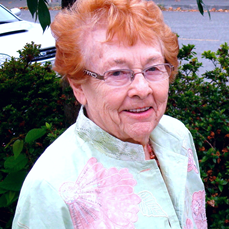by April | Feb 14, 2017 | Encouragement, Grief recover, hope, Love, Marriage
Chronic illness and pain really stink (or insert your own adjective here). For the person suffering, it’s rough. It’s hard to find empathy from others because to find empathy means you have to share about how you really feel, and that means opening yourself up to possible pity, unwanted advice, or criticism. And when you find people who are good listeners, you risk wearing them out. So, if you’ve been at this for a while, you’re cautious. You’ve lost people. But at least we know we need people. (I know this is a strange way to start out a post on Valentine’s day but bear with me.)
Today I want to talk about the others. Our others.
For the spouse or significant other of the person with chronic illness, I want to tell you that the road is hard and isolating. Possibly just as much as the sufferer. I want to acknowledge your pain.
When illness hits one of you, the other often goes unnoticed. People ask how the ill partner is and if they need anything, etc. What those outside the relationship (and sometimes the others themselves) don’t realize is that, as a couple, both of you are hurting. All the times you have found empathy? Your other is not even looking for it because they don’t realize they need it. But they do.
This wasn’t what your husband or wife—your other—signed up for. It’s in the vows—for better or for worse. When you’re newly married, the idea of worse isn’t on the radar. Forgive me for speaking in generalities. There are people who marry someone with a current illness or disability and are a bit more prepared. I say a bit because our imaginations just can’t do it justice: watching the one you love suffer is hard work. It’s painful.
idea of worse isn’t on the radar. Forgive me for speaking in generalities. There are people who marry someone with a current illness or disability and are a bit more prepared. I say a bit because our imaginations just can’t do it justice: watching the one you love suffer is hard work. It’s painful.
There’s a certain amount of helplessness that occurs when your spouse becomes permanently hurt or ill and you can’t do anything about it. You can’t make them well, and you can’t take away their pain. This doesn’t change your desire to do so, though. You begin a fight you don’t know how to win. That you can’t actually win. Sorry.
It’s maddening and frustrating. It’s agonizing and life-altering. You get angry. Rightly so. It’s not fair. Acceptance comes and goes like the tides. There’s one thing no one seems to expect, though: Grief.
Grief is a daily part of the illness process for the sick/suffering—mourning who you aren’t anymore, learning to adjust to the new normal, the new (less improved) you. It goes up and down like a roller coaster. One day you are managing, at the top, looking above the clouds, and the next you are building speed toward the bottom that’s engulfed in fog, not sure if you’re going to stop before you hit something.
It is also this way for your other.
You as a couple can’t do the things you used to. Long strolls, spontaneous events, and big days packed with activities are done. It used to be about the two of you (and possibly your kids). Now, it’s entirely about one of you and deciding on what can they manage. Doing things in succession is in the past. Maybe one or two hours, or a half of a day is possible, but long weekends of jumping from one thing to another are out. You, our other, are not now the equal partner, but the caregiver.
This is a huge shift. And it hurts.
Unless you’re practiced in being self-sacrificing, it might become unbearable. As Christians, my husband and I count on the Lord giving us extra peace and strength and joy. The Holy Spirit has an unending supply. On our best days, we remember to pray and ask. On our worst? I’ll just say it, those are the worst.
My message is this: It’s important for us to realize that our significant other is suffering, too. Differently, but they are on a similar path that intersects yours. It weaves back and forth across your way, under you, around you in a pattern that reveals pain and love and hope and all that in between.
[tweetthis hidden_hashtags=”#marriage #illness”]It’s important for us to realize that our significant other is suffering, too.[/tweetthis]
So while you need time to grieve, give your other the space to do so, too. It’s real and necessary. It takes patience and love and forgiveness. For both of you. Every day. The good ones and the rough ones. You’re really in this together. Talk to each other. Share your disappointments. Find your new path. And then find another new path. And another. Don’t give up on each other. What is meant to be a curse, can turn into a blessing that ties you closer together than you ever imagined you could be with another person. It’s not easy. But it’s true.
[tweetthis hidden_hashtags=”#suffering #marriage #hope”]What is meant to be a curse, can turn into a blessing.[/tweetthis]
To my other, my sweet husband: You are not forgotten. I see you. I see your sacrifices. I see the worry in your eyes. I see your pain. You are appreciated and I’m so grateful. I’m blessed that I can face this with you. You are by my side—and on tough days at my back pushing my wheelchair. Even so, you never make me feel disabled. You never make me feel less. You see me as I used to be, and through your eyes, I see myself in a new light. I don’t know how you do that, but you do. I love you. Happy Valentine’s day.
by April | Oct 26, 2012 | Compassion, Faith, Grief, Love, Prayer
 I took my son to see his specialist the other day. While we were sitting there, he played with his Lego men and another mom sat reading a book to her son. Across the room, a couple held their daughter and made little jokes. It’s unspoken that we’re all there for a reason—our kids suffer from some sort of gastrointestinal illness. As we pretended we were there for ‘normal’ reasons, a woman entered, pushing her disabled young son in a raised wheel chair. As soon as the door opened, the boy made himself known. He wailed in a most heart-wrenching way.
I took my son to see his specialist the other day. While we were sitting there, he played with his Lego men and another mom sat reading a book to her son. Across the room, a couple held their daughter and made little jokes. It’s unspoken that we’re all there for a reason—our kids suffer from some sort of gastrointestinal illness. As we pretended we were there for ‘normal’ reasons, a woman entered, pushing her disabled young son in a raised wheel chair. As soon as the door opened, the boy made himself known. He wailed in a most heart-wrenching way.
As she checked in at the receptionist’s desk, his wails grew louder, more intense. He sobbed, screamed and then began a rasping gag. I surmised he had lung issues, with whatever other health issues he had. And he was one unhappy boy.
Everyone in the room immediately got quiet and tried looking at anything in the room except for the crying boy. My son’s hands stilled over his toys but, instead of looking away, stared openly at the other boy, his own eyes filling with tears. Mine soon followed. He looked up at me, face full of fear mixed with compassion. We’ve had a lot of moments these past four years that have made the frailness of life very apparent to us—but seeing someone so young suffering really hit home with Seth.
The boy’s sobs and rasps quieted as his very patient mother took off his coat and brushed her hands down his arms, adjusting his legs and shifting his Spongebob pillow behind his neck to make him more comfortable. It was then I noticed the boy’s earplugs. As the patients were called, they left the room with relief. I have to admit, I was hoping for our turn—as the boy still had not quit crying and gagging on phlegm. I felt tense from his screams and it’d only been fifteen minutes—and then I looked at the mother’s face. She seemed so alone. I wondered if she had anyone to lean on.
I put myself in her place, isolated, care-giving for her son all day long, and probably all night long as well. Exhausting. For them both.
Instead of acting like they weren’t there, I engaged her in conversation past his wails and rasps. I asked if he had breathing problems, and she said he’d suffered a brain injury so his lungs and muscles didn’t do what they were supposed to, to help clear things out. He was five. As she spoke, he calmed a bit and then another person entered the room and the door buzzer went off—and so did the boys cries.
I said, “He hates his chair, does he?” I don’t know what made me think that. I remember my own son, hating his car seat so much that he’d scream the entire time he was in it. He wasn’t uncomfortable, he wasn’t hurting, but he hated it and would scream bloody murder.
Her eyes lit up. “Yes, he does. And loud noises, they frighten him.” She motioned to the ear plugs. For a moment, we were just two mom’s visiting, sharing notes about our boys. Then it was his turn, and she gave me a grateful smile and wheeled her son into their appointment.
I looked down at Seth, still sitting quietly, thinking. “That was hard, wasn’t it?” I asked him, knowing full well he’d be thinking about the boy and how hard his life was for days. He nodded. “Let’s pray for that mom and boy, okay?” And he nodded again. We took some time right there to pray.
It’s our nature to avoid suffering. It’s hard and scary and it makes us feel insecure. Life can be like that. But I think worse than suffering, is pretending it doesn’t exist. There are people in pain all around us, even if they aren’t crying out—it’d do us all well to stop and listen, to be there and be compassionate. To come alongside them, a shoulder to lean on. And pray.
Romans 12:15 Rejoice with those who rejoice; mourn with those who mourn. (full text here)
Mathew 7:12 So in everything, do to others what you would have them do to you, for this sums up the Law and the Prophets. (full text here)
1 John 4:7-12 Dear friends, let us love one another, for love comes from God. Everyone who loves has been born of God and knows God. Whoever does not love does not know God, because God is love. This is how God showed his love among us: He sent his one and only Son into the world that we might live through him. This is love: not that we loved God, but that he loved us and sent his Son as an atoning sacrifice for our sins. Dear friends, since God so loved us, we also ought to love one another. No one has ever seen God; but if we love one another, God lives in us and his love is made complete in us. (full text here)
by April | Jul 22, 2012 | Love, Short Stories, Writing

A sharp horn sounded behind Mary as she headed up the steps to her duplex in the hot May sunshine. She turned towards the older model Buick, unable to see who was driving the car, but gave a friendly wave. As a rule, she waved to anyone. Fairly certain the father of her grandchildren belonged to a gang, she wanted to stay on good terms with everyone in the neighborhood.
Tossing her keys on the antique stand near the door, she entered the kitchen and opened the freezer. Inside, she found a frozen glass mug that she filled with ice and edged with a lemon slice. She stepped through the back door and retrieved a large jar of sun tea off the back stoop. It’d been brewing since 4AM, when she’d left for her job at the Dollar Mart—just about ten hours of steeping. The heat from the glass burned the tips of her fingers as she carried the jar back to the counter. As the liquid poured in over the crackling ice cubs, cooling the concoction, a sense of peace filled her. Mary’d been looking forward to this all day. She held the golden-brown drink near her nose and let the earthy scent of tea, sunshine and citrus draw her mind to easier times.
After flipping the switch on the oscillating fan sitting on the Formica counter top, she pulled up a chair at the kitchen table, directly in its path. Giving the crumbs from her hasty breakfast a sweep off the table, she drew the pile of mail toward her. She saw several envelopes addressed to Tina with ‘final notice’ highlighted in red letters. Mary clucked her tongue. What would ever become of that girl? She’d raised her better than this.
Sure that the tea had chilled long enough, she sipped it, letting the strong brew energize her from the inside out. It was just as good as she hoped it would be. She clucked her tongue again and sighed.
She couldn’t say that about much in her life these days.
Glancing at the clock, she saw her grandsons would be home any time now. Really, Jimmy was supposed to pick them up from school and take them home with him for a few hours, helping them with their schoolwork and spending ‘quality time’ with his sons. The social worker’s idea was a good one—and if Jimmy had been a good man, it would have worked. Knowing him as Mary did, he’d last about an hour with the boys and he’d be dragging them home to her instead. She’d be the one helping them with homework, fixing them dinner, giving them baths. Then Tina would saunter in and give them kisses goodnight, declaring once again how the day got away from her. Got away from her while she was having drinks at the bar near her work, most likely.
Best laid plans. That phrase had tumbled through Mary’s mind more than once in the past six years. Her daughter had shown up pregnant on her doorstep, and Jimmy made one false promise after another. As soon as he got a good job, they’d get married and he’d bring her and the baby home. Now there were two babies, and they weren’t babies anymore. How could Tina be so blind to mix her life up with that lazy, no-good man?
Mary shot a look at the ceiling. “Just like her mother, then, isn’t she, Lord?” As if Tina had written down Mary’s life story, her own life followed her mother’s map of failure—almost item for item. Except Mary only had Tina, and she certainly didn’t have any family to rely on in the early days. There wasn’t any escaping for Mary after work.
Even now—it was as if her day never ended.
Mary filled her mug with ice once again, and then with tea. This time, she grabbed a couple cookies from the package on the counter and sat down to enjoy the silence of her home for a few more minutes. Soon enough those boys would tumble through the door, and the house would fill with the sounds of laughing and arguing. She glanced at the wall covered with signed handprints and other artwork the boys had made her in school.
Pride nudged her as she remembered them giving those gifts to her on Mother’s day and holidays. They’d stopped making such things for their mother a long time ago. They knew who took care of them, who fed them, who could be counted on.
A sudden sadness washed over her. It wasn’t right, not any of it. Tina should be the one they came home to. Tina should be the one rocking them to sleep when they were scared, or reading them bedtime stories.
The newspaper on the table caught her attention. Mary flipped it open and began scanning the apartment section. There was a small two-bedroom four blocks away. She glanced around and took in the books, the papers, the toys strewn from one end of her house to the other. It’d take a whole lot of packing to move Tina and the boys from her place—and Tina wouldn’t want to help. Four blocks?
Mary flipped through the paper again, scanning, her mind forming a solid plan. It was time for change around here. Something had to. There it was, ten blocks away, a furnished one-bedroom. They could stay here, she’d leave. She picked up the phone and called. It was still available. A large Victorian, cut up into manageable units. She’d seen the place—it was in a quiet neighborhood on a dead end. Ten blocks. Perfect. She called back and made the arrangements. She needed boxes. The boys would help her pack. Tina could have her own room, and she and Jimmy could finally get married. Or not. Maybe when Tina forced his hand she’d see him for what he was and tell him to go for good.
The front door screen opened with a screech. Mary fixed a smile on her face to greet the boys, but instead of the boys, Tina came around the corner.
“I’m home early tonight. You happy?” Tina headed towards the table, a sour grimace on her face.
Mary took a deep breath to steady herself. “Before you sit down, grab a glass of tea. I’ve got some news for you.”
Copyright by April McGowan 2012
by April | Jun 2, 2012 | Faith, Grief, Love, Thankfulness
 The past few years have been a struggle for my family health-wise. I’ve shared as much on my blog. This has made it hard for us to take vacations. But a couple months back, we planned one down to northern California, to see a good portion of our family—one of those being my Granny who, at the age of 96, was declining in health.
The past few years have been a struggle for my family health-wise. I’ve shared as much on my blog. This has made it hard for us to take vacations. But a couple months back, we planned one down to northern California, to see a good portion of our family—one of those being my Granny who, at the age of 96, was declining in health.
Unfortunately, we didn’t get there in time, but were able to attend her memorial. And while I love to write and do pretty well with my fingers on the keyboard, I’m not much of a speaker. I mean, I do fine—but it’s hard for me to talk in front of people, and especially difficult during such an emotional time. So, I waited until now.
I’ve been very blessed to have a number of grandparents in my life. I have four parents (due to remarriage), and were able to know most of their parents, and even a couple of their grandmother’s.
Both Granny, and her mother, Grandma Lind, were instrumental in my life. My mother and I moved to northern California when I was ten. To say I was lonely is a huge understatement. It was just a few short months later that my mother met and married my step-father. And thus, I was thrust into a new family with grandparents and a brother and sister (who were out of the house by my arrival), aunts and uncles and cousins. I felt very uneasy, and didn’t know what to expect.
Both Granny and Grandma Lind took me right into the family. If there were any doubts they had about me, I never knew it. As soon as my parents said, “I do” I was a grandkid and that was that. I can’t tell you what it meant to me to be accepted so quickly.
Granny was expert in making just about anyone feel at home, and I did. So much so, that one time, when she was babysitting me, I noticed that the clock on the piano was an hour off (Daylight savings time had come and gone). So, I fixed it. She had a funny look on her face when I told her how I’d taken care of it for her. I had no idea that a professional needed to set that clock…that expensive mantle clock. But, after explaining it to me, it was never mentioned again. I discovered later it had been quite expensive to repair. I kept a clear path between that clock and me from then on.
She loved music, and during a period of time when I was taking piano lessons, let me come over and practice at her house. I’m sure she must have gotten pretty tired of hearing me play the same pieces over and over again (I use the word play loosely)—but she just smiled and encouraged me. I never really mastered it, I wish I had.
Granny loved clowns and had a collection of figurines and pictures. One Halloween, I was about thirteen, I decided to be a clown for trick-o-treating. My friends and I canvassed the whole town (it felt like) and I needed to use the bathroom. We were nearby Granny’s house, so I knocked on the door. She answered and gave me a candy. I asked, “Can I use the bathroom?” Well, I’d never seen an incredulous look on her face before, but sure gave me one. When I stepped inside, she kindly asked me to leave, took me firmly by the arm and escorted me out, shutting and locking the door, flipping off the porch light. To say I was shocked didn’t begin to explain my feelings. My grandmother had just tossed me from the house! As I was standing in the dark, wondering what happened, I realized she had no idea who I was. So, I started knocking again. After a minute, she flipped on the porch light, opened the door a crack and told me to go away in a very stern voice. Had I been the miscreant she took me for, I’m sure I would have turned tail and ran. Instead I said, “But, Granny, it’s me, it’s April!” She was just as relieved as I was. I apparently made a very convincing clown.
Years later, when I got engaged, she lovingly sat my fiancé and I down and asked what our plans were (we were pretty young). She was matter-of-fact, yet kind. And over the twenty plus years we’ve been married, unendingly supportive.
People at her memorial talked about her classy appearance (always dressed to the nines); her love of travel (was even asked by a native New Guinea man to be one of his wives); her love of sporty cars; how she walked in her faith every day of her life, reaching out to strangers and making them feel like a friend. She so did. But, for me, I’ll always remember how she looked at this lonely ten-year-old girl and took her as one of her own—no questions asked—and loved her. Thanks, Granny.
by April | Feb 14, 2012 | Encouragement, Jesus, Love, Valentine's Day
 Happy Valentine’s Day. Now, I know that the validity of this day is often called into question by naysayers who claim the greeting card industry started it all—but if you do a bit of research, you’ll find it was first founded by a pope to honor Christian martyrs. Then, in the 15th century it turned into a day to honor loved ones via gifts of candy and notes. And THEN the greeting card companies got into the game. So, people get all worked up about how it has to do with marketing and…well…it probably has a lot to do with it. After all, candy sales go up, and so do flower sales. But, it’s also a good excuse to tell loved ones how much they mean to us.
Happy Valentine’s Day. Now, I know that the validity of this day is often called into question by naysayers who claim the greeting card industry started it all—but if you do a bit of research, you’ll find it was first founded by a pope to honor Christian martyrs. Then, in the 15th century it turned into a day to honor loved ones via gifts of candy and notes. And THEN the greeting card companies got into the game. So, people get all worked up about how it has to do with marketing and…well…it probably has a lot to do with it. After all, candy sales go up, and so do flower sales. But, it’s also a good excuse to tell loved ones how much they mean to us.
When I was in high school, my school sold roses on Valentine’s day to make money for programs. And every year I hoped to get one from someone—but I never did. A couple times during the day, rose deliveries would be made in the classrooms, and I’d hold my breath, thinking maybe some unnamed admirer would confess their crush through a rose. Throughout the day, you could see clearly who was ‘loved’ by the rose placed prominently on their desk, carried proudly to each class. For me, though, it was not to be.
What I did not know at the time was that one day I’d marry a man who gave me flowers throughout the year. A man who would make personal sacrifices for me time and again. Who would do anything to protect and provide for me and our two kids. Who would stand by me in trial, pray for me during illness, and rejoice with me in blessings.
And as wonderful as I think my husband is (and you may think your significant other is), there’s One who loves us better. He set the standard on love—one that we can’t possibly meet without Him.
But, maybe you’re not feeling so loved or lovely. You’re thinking, “What’s love got to do with it?” You might even be angry at where you are in life. If you are today like I was once, wishing and hoping to be loved and appreciated, feeling unnoticed—know that you are not only noticed, but fully known. And that sacrificial love has been given to you, a free gift for the taking.
1 John 4: 7-12 Dear friends, let us love one another, for love comes from God. Everyone who loves has been born of God and knows God. Whoever does not love does not know God, because God is love. This is how God showed his love among us: He sent his one and only Son into the world that we might live through him. This is love: not that we loved God, but that he loved us and sent his Son as an atoning sacrifice for our sins. Dear friends, since God so loved us, we also ought to love one another. No one has ever seen God; but if we love one another, God lives in us and his love is made complete in us. (read in context here)
 idea of worse isn’t on the radar. Forgive me for speaking in generalities. There are people who marry someone with a current illness or disability and are a bit more prepared. I say a bit because our imaginations just can’t do it justice: watching the one you love suffer is hard work. It’s painful.
idea of worse isn’t on the radar. Forgive me for speaking in generalities. There are people who marry someone with a current illness or disability and are a bit more prepared. I say a bit because our imaginations just can’t do it justice: watching the one you love suffer is hard work. It’s painful.



